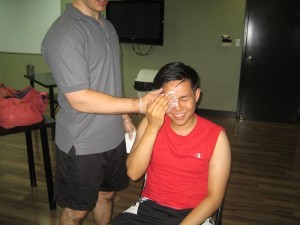Traumatic iritis occurs if the iris is damaged where it could not open and close properly in response to light. It is important to note that the iris is the colored region of the eye around the pupil. It opens and closes to regulate the amount of light entering the back part of the eye.
Traumatic iritis is likely to occur once something strikes the eye or enters the eye. This results to a bruise, small-sized tear or significant damage to the iris.
What are the signs?
The usual indications of the injury include:
- Aching sensation or discomfort within and around the eye
- Blurred vision
- Increased sensitivity to light or glare or light halos
- Eye redness
Aching sensation or discomfort within and around the eye.
The iris might have an irregular shape once damaged which might be permanent.
If the injury is suspected, the doctor will conduct an exam using a microscope with a light attached which is called as a slit lamp to closely assess the front and back part of the eye. Drops are applied to dilate or enlarge the pupils and light is used to view the back part of the eye.
Management of traumatic iritis
Generally, an individual with traumatic iritis is given eyedrops to dilate the pupil which relaxes the eye muscles and lessens the pain. Steroid eyedrops might also be given to reduce the swelling. In case the eye pressure is elevated, the individual is given eyedrops to reduce the pressure.
Remember that traumatic iritis typically settles within 1-2 weeks. If the iris is permanently damaged and has a deformed shape, the individual will always have issues with light sensitivity and glare.
More Information / Disclaimer
The information posted on this page on traumatic iritis is for learning purposes only. Learn to recognize the signs of this injury by taking a standard first aid course with Ottawa First Aid.

